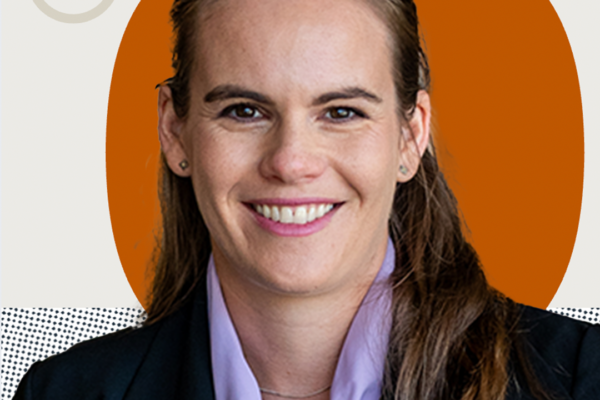Herb Kelleher: An Entrepreneur for all Seasons
The values and brilliance of the legendary co-founder of Southwest Airlines are so appealing that they nearly jump off the page in an interview from 2002. Kelleher passed away at the age of 87 on Jan. 3, 2019.

Interview by J.B. Bird
When Herb Kelleher, the legendary chairman, co-founder and former CEO of Southwest Airlines, first agreed to sit down for an interview in 2001, he had just announced plans to scale back his duties. After successfully battling prostate cancer and seeing his company through its 28th consecutive year of profitability (a feat completely unprecedented in the airline industry), Kelleher planned to “throttle down” on October 1, 2001.
As he tells it, October 1 and reducing his hours never came.
“After September 11, it was an emergency situation where everybody was supposed to pitch in,” said Kelleher. “It was an unprecedented crisis in the airline industry, and survival literally was at stake.”
Southwest not only survived, it thrived. At the request of new CEO Jim Parker and COO Colleen Barrett, Kelleher retained several key areas of responsibility while remaining active as chairman. Under their joint stewardship, Southwest audaciously pursued a growth strategy even as other carriers scaled back.
While the big three — American, United, and Delta — laid off nearly 50,000 employees in 2001, Southwest, the fourth-largest U.S. carrier, maintained a “no-layoffs” policy. This February, the airline that started as a business plan on a cocktail napkin announced its 30th consecutive year of profitability.
Kelleher’s approach to management offers a series of paradoxes. Consider, for example, his philosophy on shareholders. In 2002, Morningstar Inc. recognized Kelleher and Parker as co-CEOs of the Year for their record of maximizing shareholder value. And yet, as Kelleher explains, he has always placed the needs of shareholders last, after employees and customers.
This approach never hurt the stock (NYSE-LUV). According to Morningstar, Southwest showed an annualized total return from 1992–2001 of 23.64 percent, much higher than the negative 0.74 percent average for Southwest’s big three rivals. (Over that same period, the S&P 500 index returned 12.93 percent annually.)
Shareholder activists seeking increased control over management may want to take note from this example and be careful what they wish for. As a writer, I hope that would-be CEOs follow Kelleher’s example in another area. Not only was he unfailingly generous with his time during our interview, but he also began the interview by getting up and making me a cup of coffee. It was a small demonstration of a corporate culture that has proven to be commendable, personable, and profitable.
One thing I wanted to ask you about is humility. You hold that up as a corporate value.
Yes, very strongly.
It’s not typically advertised as a corporate value.
Yes, I know that. (Laughs.)
You have some other interesting values: that people shouldn’t wear masks when they come to work and that business should be fun.
Well, I just always have felt that people should be natural in their behavior, that they should be able to derive enjoyment from whatever they do. When they derive enjoyment they tend to work together better, they tend to be more productive. One time a ramp agent wrote me, he said, “Herb, I’ve caught on to what you’re doing, you’re making work fun — and home is work.” Now, I’ve never repeated that to anybody because I thought that wouldn’t make me very popular in certain quarters but he did get it. And you know I don’t think that in order for people to be effective they have to act like automatons.
You’ve said you’re not in the airlines business, but you’re in the customer service business.
Yes, basically we’ve said we’re in the customer service business and we happen to operate an airline. But then any business is about providing great customer service to the people you serve. We just happen to be in one branch of the customer service business.
Is it true that because of that idea, you kind of expanded the market, created markets where they didn’t exist for the airlines industry?
Yes, we sure have. As a matter of fact that’s one of the most satisfying things and that is the essential meaning of the symbol of freedom (one of Southwest’s taglines). If you go into a new city pair market and let’s say there are about 125 thousand people a year flying between the two cities when you enter it, and at the end of one year with Southwest Airlines’ great customer service, low fares, and high frequency which equals convenience there are a million people flying, what does that tell you? What that tells you is that you have just liberated a tremendous number of people who for business and personal reasons are now able to fly much more than they ever were before. And that’s very important to them. And that’s why we’re a symbol of freedom.
But the interesting thing about that signature line was that it really wasn’t directed so much at the outside world as it was at the inside world, at our own people, because we wanted to signify to them that they’re doing something that’s very important and that’s good for society.
Speaking on that topic, you’ve set your corporate hierarchy as employees first, customers second, shareholders last.
Yes. It used to be regarded as sort of I guess you might say an analyst’s or a business school conundrum. People would ask me when I was talking at a business school or to an analyst group, “Which comes first, your employees, your customers or your shareholders?” And you know for a long, long time, many decades, I’ve been telling them that it isn’t a conundrum. That if you treat your employees right, they’re happy and proud and participative with respect to what they’re doing. They manifest that attitude to your customers and your customers come back. And what’s business all about but having your customers come back, which makes the shareholders happy?
With regard to the shareholders being last, would it be fair to say that as you look at some of the crises going on over the last year, the shareholders are now paying for the cost of corporate hierarchies that used to place them first?
Well, they’re paying for it, but you see, it’s holistic. You look at taking that approach that Southwest Airlines has, and then you look at the fact that since the end of 1972 our stock has gone up 138,000 percent. So, obviously, there are not any tensions involved among the various constituencies. Southwest Airlines is a manifestation of that in another way, in that a great many of our shareholders are also our employees, and a great many of our customers are also shareholders. So it’s kind of a unified constituency, and the financial results have been superb for our shareholders. It’s just when you say the shareholders come first to the detriment of your customers and your employees — that is when you might get into trouble and it might lead the chief executive officer to really be saying, I come first. (Chuckles sardonically.)
Southwest has a very well defined mission statement visible throughout the building, the website. What are your thoughts on the importance of a mission statement?
I have two comments on the mission statement:
First of all, one of the things that I want to tell you with respect to a mission statement is that a lot of people hire outside people to prepare their mission statements. My suggestion is that if you need someone outside your company to prepare a mission statement for you, then you really don’t know what your mission is and you probably don’t have one.
The second thing is that people always are writing and calling and saying we want to help you revise your mission statement, you know, they say, “Things have changed greatly in the American economy.” And I’ve said, ours is eternal. It has nothing to do with the American economy. It simply has to do with the way you treat people — the respect that you give them and the opportunity that you give them whether they are employees or customers. So it’s basically focused on people and how they should relate to one another and that’s eternal. So we don’t need to revise it to take into account new developments in corporate America.
I’d like to switch now and talk about why you funded the Kelleher Center for Entrepreneurship, Growth, and Renewal. It’s obviously a topic that means a lot to you, but what do you see in it in terms of value?
As far as value is concerned, the principal reason that I moved to Texas from New Jersey many, many years ago was because I recognized that Texas was a much more entrepreneurial state than New Jersey, that the opportunities to start things were greater in Texas. And my vision was fortunately fulfilled. But that really was my primary motivation for moving to Texas. I kind of liked its swashbuckling ways — the fact that you could call one of the biggest and wealthiest industrialists in the state about an idea you had and he would say, “Well, okay, be here in about an hour.” You know, that sort of thing. And I think that’s served Texas very well, and I want to see it continue in Texas. I want to see Texas remain an entrepreneurial powerhouse in the United States…. I think that preserving, maintaining, and perhaps nurturing the entrepreneurial spirit is very important to the future of Texas and its younger people.
And another thing about it, it’s not just starting something, although that in and of itself has a form of creativity to it that’s very appealing to people who have somewhat of a sense of adventure, but it’s constantly renewing it, it’s constantly working to keep it fresh, to keep it creative, to keep it imaginative, to keep it dedicated, not to allow it to desiccate and, you know ossify, into an organization that suddenly is focused more internally than it is externally — that’s focused more on the preservation of the institution than on what the institution produces for society and for the work force.
Is that why you don’t have a window? [Kelleher is well known among associates for having an office at corporate headquarters that purposely does not have a window.]
Yes, exactly, I’m trying to set a good example that it doesn’t matter where your office is, it’s where your mind is that should be important. And actually, you did hit on that, you’re right, when we built this building I said give me an interior office because fundamentally bureaucrats scrap over space, which in and of itself I think should be somewhat meaningless, physical space. It’s the space between your ears that should be the important thing. So I did say, I want an office without a window, away from a corner.
Back to entrepreneurship, so it’s a value—
You have to — you know, bureaucracy in its worst form brings stagnation, so you have to constantly fight against becoming absorbed in the process of doing things rather than the results of doing them. You know, you can do all the wrong things right. (Laughs.) You know, we’ve created the documents, we’ve done the studies, and now we’re going to happily go ahead and do the wrong thing insofar as the future success of the enterprise is concerned.
But I think that as far as the center is concerned, the fundamental point that I want to make is that it’s not just to encourage people to start things, but it’s also to encourage them to keep renewing them — keep the flame burning.
I want to switch back just a bit to you. One thing I wanted to ask was about your battle with cancer.
It wasn’t really much of a battle. I just kind of kicked its ass — with the help of The University of Texas of course. (Kelleher was diagnosed with prostate cancer in 1999 and pursued a successful treatment at The University of Texas MD Anderson Cancer Center.) I just kept working — I just kept working the whole time. I went down to Houston every day, got radiation treatment, came back to the office and kept working.
Did it change your outlook on life?
No. As a matter of fact, I’ve got to tell you this, I was over there waiting for one of those treatments. And I ask them finally, “I’d like to ask you why, if this is so good for me, all of you run out of the room before you turn the machine on. Don’t you want to share the benefits?” (He laughs.) But this lady, she stroked my hand, she was very nice, and she said, “I bet you’re scared.” And I said, “Yeah, I’m scared. You know what I’m afraid of? I’m afraid I’m going to die of boredom,” you know, waiting to get in there. (He laughs harder.) I just loved to see everybody scurry before they turn on the X-ray machine. “You know this is terrific! Why are you all wearing those lead jackets?” (He laughs even harder, then pauses.) So, you either get it, or it gets you.
As our interview closed, Kelleher talked about the famous court battle behind the founding of Southwest Airlines, which culminated in his successful argument in 1971 before the U.S. Supreme Court winning the carrier’s right to operate. Kelleher closed with these thoughts for would-be entrepreneurs.
I realized it was going to be a long, hard and bitter battle to get (Southwest) into operation because the other carriers would exert every effort they possibly could to prevent that from coming to pass. Indeed, it took three-and-a-half years of litigation and running out of money in order to get it done. But that’s another thing with respect to entrepreneurs that they need to understand, that you can’t just have a fabulous idea. You’ve got to have a lot of tenacity, stick-to-it-iveness, to buck the tide of the general wisdom, because if it’s general it’s probably not wisdom and if it’s wisdom it’s probably not general. (In 1971,) there probably weren’t ten people in the state of Texas who would have given you a plug nickel for the chances of success of Southwest Airlines.
About this Post
Share:


